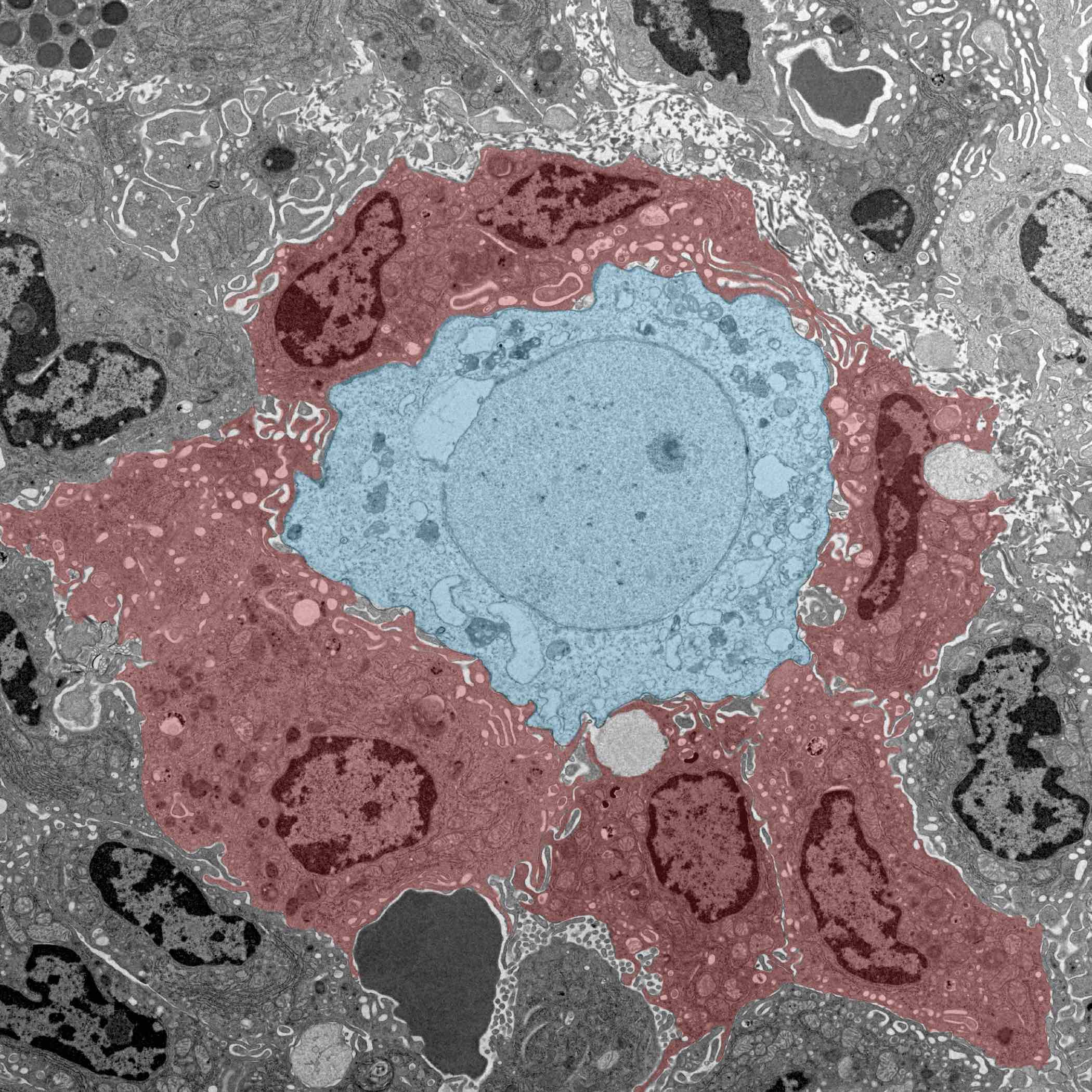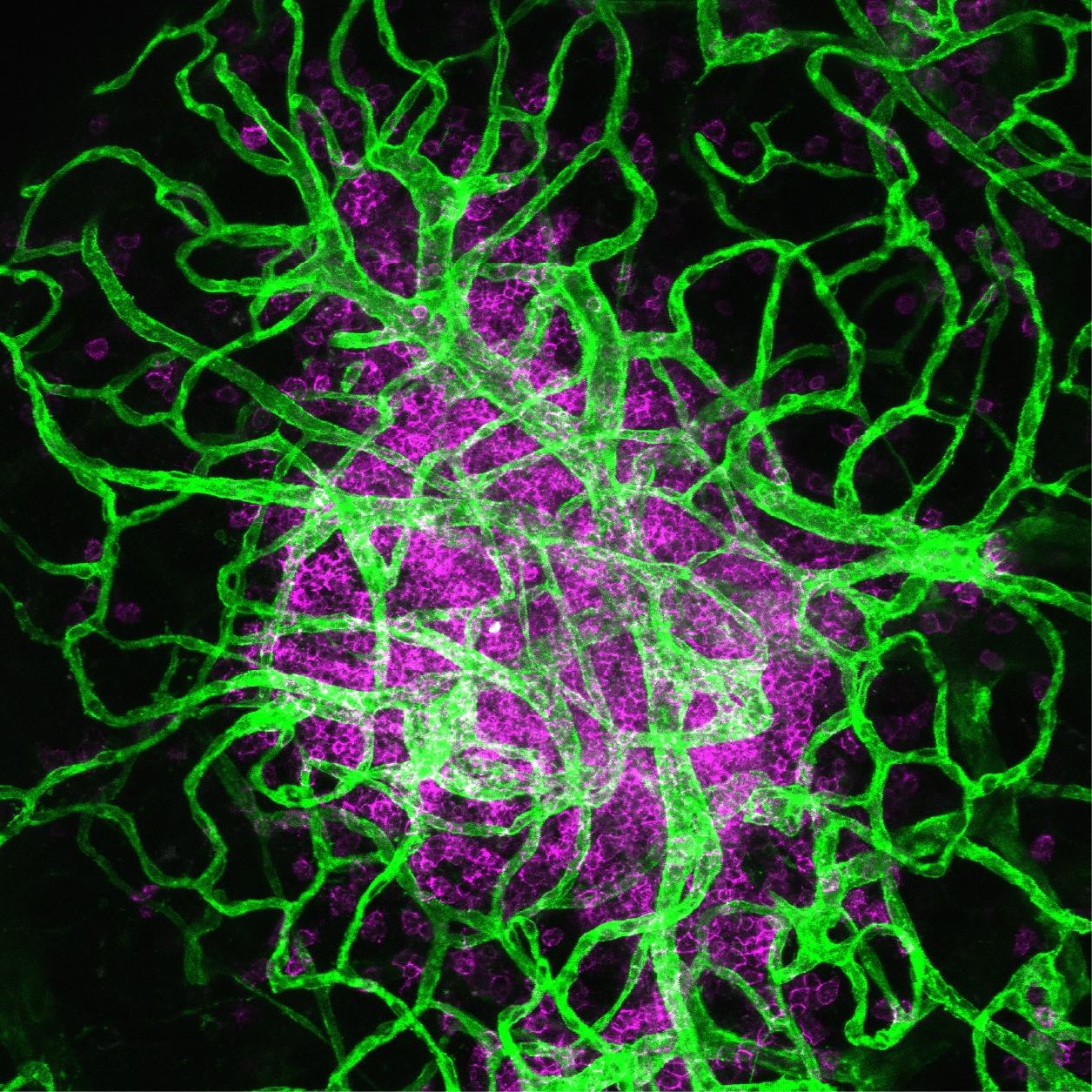Immunobiology of Monocytes, Macrophages and Dendritic Cells
Research Summary
Our research interests focus at exploring the function of transient and resident peritoneal macrophages in homeostasis, infection- and tumor-driven inflammatory reactions and peritoneal metastatic tumor growth. In vivo mouse experimental models, as well as cell biology, flow cytometry, confocal microscopy, in vivo imaging and transcriptomic analysis techniques are used in our studies.
Research Lines
Colorectal cancer (CRC) is the third most common cancer and the fourth leading-cause of cancer-associated death worldwide, being the metastatic disease the principal cause of mortality. After surgical resection of primary CRC tumors, up to 40% of patients develop metastasis. Peritoneal metastasis is the most common metastatic manifestation of CRC, after liver metastasis, and in up to 25% of patients the peritoneum is the unique site of metastasis. Patients with peritoneal metastasis have a poor prognosis and suffer from excruciating symptoms like intestinal obstruction, accumulation of malignant ascites, and severe incurable pain syndromes in their terminal stages of disease.

Electron microscopy image of an early colorectal cancer peritoneal metastasis showing a necrotic tumor cell (blue) surrounded by resident peritoneal macrophages (red).

Confocal microscopy imaging of the omental vascular network reaction to peritoneal inflammation (green: CD31 staining of endothelial cells; purple: CD19 staining of milky spot B lymphocytes).
Current therapeutical strategies, based on cytoreductive surgery and hyperthermic intraperitoneal chemotherapy, are suitable for a minority of patients, and have severe adverse effects and low efficacy. Therefore, alternative treatments to prevent CRC peritoneal metastatic growth remain an unmet medical need. Since peritoneal resident macrophages (resMØs) are the first potential line of defense against metastatic tumor growth in the peritoneal cavity, the design of therapeutical strategies based on promoting the anti-tumoral potential of peritoneal resMØs could be the basis for new immunotherapy-based treatments against CRC peritoneal metastasis
Using a mouse CRC peritoneal metastasis model, based on the intraperitoneal injection of mouse tumor organoids derived from a CRC liver metastasis, recent data from our group support that peritoneal resMØs have an intrinsic anti-tumor potential, that contribute to control early tumor growth, but this ability can be reverted by tumor growth, resulting in the acquisition of protumoral functions by resMØs. Our current research aims therefore at exploring the transcriptomic and metabolic basis of the induction of protumoral functions in resMØs, and at designing experimental immunotherapy protocols against CRC peritoneal metastasis, based on the intraperitoneal transfer of exogenous resMØs endowed with anti-tumor ability and reprogrammed to counteract tumor-induced protumoral functions.
Publications
Group Members
Group Leader
Carlos Ardavín
Lab assistant
Marta Hernández Fernández-Sesma
PhD candidates
Margarita Ferriz Salcedo
Natalia Álvarez Ladrón





